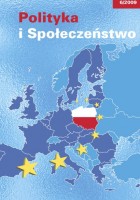WINCENTY WITOS A KLUCZOWE KWESTIE W SEJMIE USTAWODAWCZYM (1919–1922)
Wincenty Witos and the Key Issues of Sejm Ustawodawczy (1919–1922)
Author(s): HENRYK CIMEKSubject(s): Political history, Pre-WW I & WW I (1900 -1919), Interwar Period (1920 - 1939)
Published by: Wydawnictwo Uniwersytetu Rzeszowskiego
Keywords: Wincenty Witos; Sejm Ustawodawczy
Summary/Abstract: Wincenty Witos (1874–1945), Chairman of Zarząd Główny PSL Piast (Main Council of Polish Peasant Party „Piast”), was elected a deputy to Sejm Ustawodawczy (Constitutent Assembly) on 26 January 1919. Since February 1919 he was the chairman of Klub Poselski PSL Piast (Parliamentary Club of PSL Piast), and subsequently he headed Związek Sejmowy Posłów Ludowych (Parliamentary Union of Peasant Deputies) in the period between June and October 1919, as well as chairing Klub Posłów PSL (the Club of PSL Deputies) in the period between October 1920 and January 1921, consisting of deputies representing PSL Piast and PSL Wyzwolenie. Later he again became the chairman of Klub Poselski PSL Piast. During the proceedings of the Constituent Assembly, Witos took the floor 40 times as a deputy and 19 times in the capacity of Prime Minister. His interventions pertained internal issues arising in the newly re-established Polish state. In particular, they were related to agrarian reforms and the issue of borders. On the other hand, Witos did not take part in a plenary discussion concerning the Constitution. He was a member of the following parliamentary committees: foreign affairs, fiscal-budgetary and agrarian (as its chairman). As Prime Minister of the Cabinet in the period between 24 July 1920 and 13 September 1921, he concentrated primarily on the issue of war and peace with the Soviet Russia and an opportunity to establish the eastern borderline in a manner advantageous for Poland. Witos was in favour of partial expropriation of landowners and clergy as well as of creating „well-to-do” peasant farms. His was an agrarist vision of Poland. He contributed significantly to the passing of „Uchwała Sejmu Ustawodawczego z dnia 10 lipca 1919 r. w przedmiocie zasad reformy rolnej” (Law on the agrarian reform of 10 July 1919). He was of the opinion that all Polish territories should be united whereas the Polish state (Polska Ludowa – People’s Poland) should be granted part of the coastal territory. According to him, the Polish state ought to include: Galicja Wschodnia (Eastern Galicia) and Lvov, Śląsk Cieszyński (Cieszyn Silesia), Spisz (Zips), Orawa, a territory of the former Prussian partition together with Poznań (Posen) and Gdańsk (Danzig) as well as eastern lands together with Vilnius. Witos spoke critically about the resolutions adopted by the peace treaty with Germany concluded on 28 June 1919.
Journal: Polityka i Społeczeństwo
- Issue Year: 2009
- Issue No: 06
- Page Range: 18-26
- Page Count: 9
- Language: Polish

